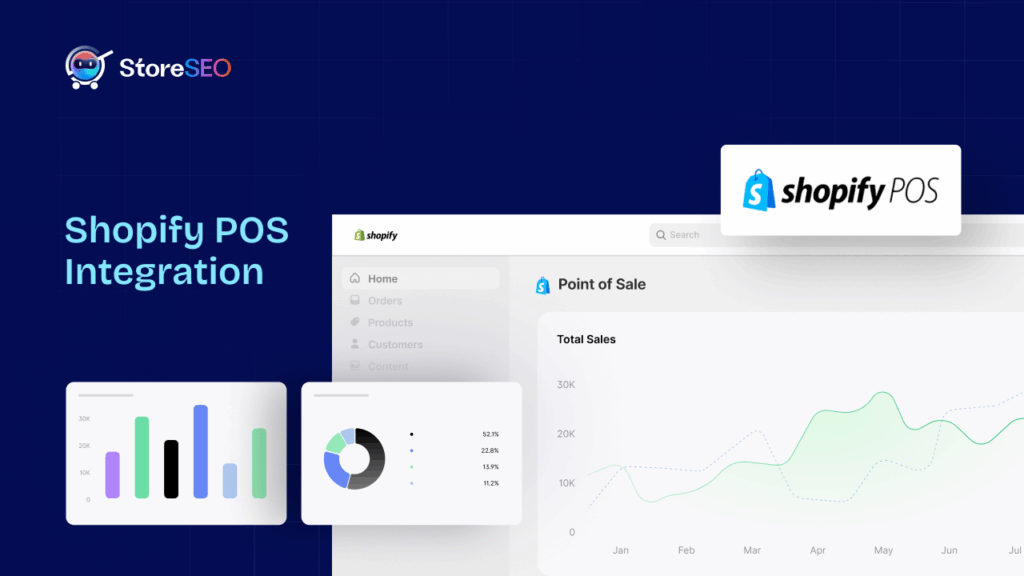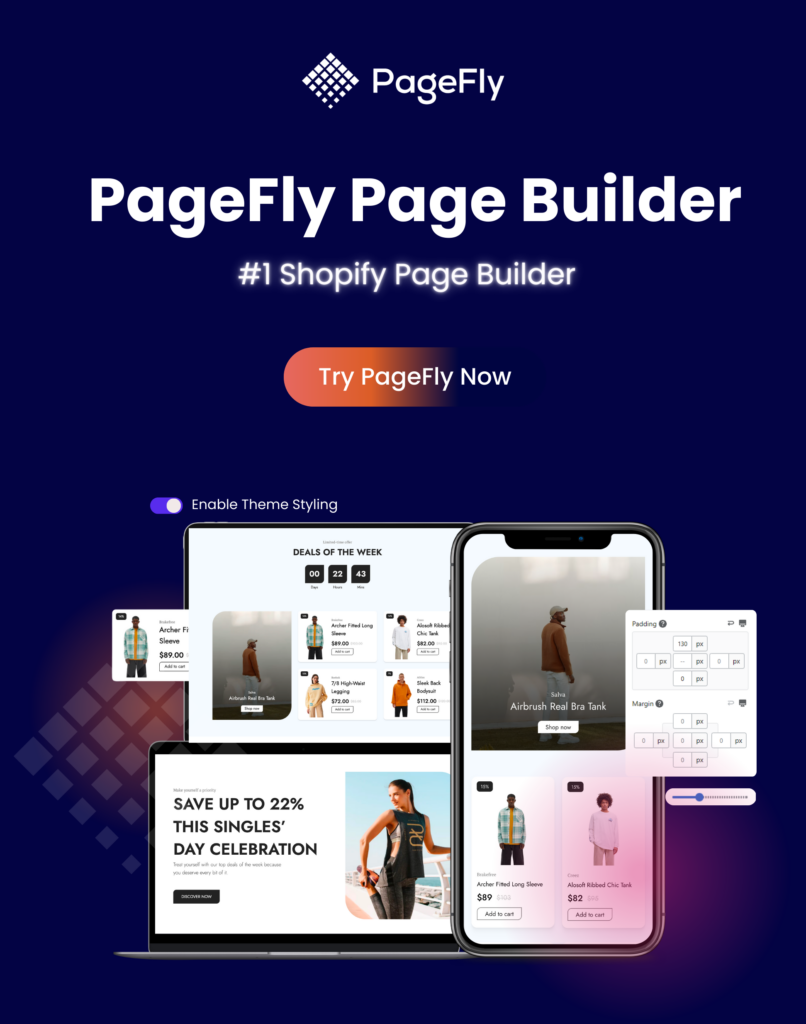Keyword cannibalization for Shopify stores is a burning topic you can find in conversations here and there. As a Shopify store owner, you must know how to find and fix this alarming issue to ensure a higher ranking on search engines like Google. But how to do so? Dive into the complete guide below to learn more about keyword cannibalization and how you can easily avoid it for your business websites.
![How To Easily Spot & Fix Keyword Cannibalization For Shopify [2025] 1 Fix Keyword Cannibalization For Shopify](https://storeseo.com/wp-content/uploads/2023/01/Rander.gif)
💡 Why Keyword Cannibalization Is A Big Issue For Shopify Stores?
Keyword cannibalization means using the same keyword, term, or phrase for multiple pages. In Shopify stores, using the same keyword for different product pages will cause keyword cannibalization and, ultimately, cause the products to not rank high on search engines. But not just that, it can cause other negative impacts too. Let’s look at the effects of keyword cannibalization for Shopify stores below in more depth.
1. Affects Your Search Engine Ranking
When you are using the same keyword in the title, meta description, tags, or anchor text for multiple pages, it confuses the search engine bots. This can be a grave problem, especially when the bots order the pages for search queries on the SERP. As a result, you will lose the chance to rank higher for this effective keyword simply due to repetition.
2. Decrease The Domain Authority
Domain authority is one of the most important factors for determining whether a website gets a higher ranking on search engine results. When you are using the same keyword for multiple pages or products, instead of strengthening authority, you are splitting it. This is a perfect example of keyword cannibalization, too, and you might lose the chance to build a higher authority web page because of this.
3. Reduce The Value Of Your Links

If you want to compete in search engine results, you definitely need some good backlinks. And if you have two different pages with the same keyword and four backlinks for each, you are wasting your backlink value.
Moreover, search engines might also consider the internal links to be spam because of the keyword overlap. Instead of splitting your backlinks as such, if you get all these backlinks for one single page with a unique keyword, it will increase your chance to rank higher.
4. Waste Your Crawl Budget
The crawl budget is essential to get indexed in search engine results. If the crawler finds keyword cannibalization on your website once, on its next visit, it won’t scrape your website effectively. As a result, you will lose your organic impression and traffic.
🔍 Easiest Ways To Spot Keyword Cannibalization In eCommerce Store?
Spotting keyword cannibalization in Shopify stores is never rocket science. You can easily find cannibalized keywords from your content in many different ways. Here, with this detailed guide, we will introduce you to the easiest solutions you can use to spot keyword cannibalization for Shopify stores.

To find cannibalized keywords on your Shopify store, you need keyword research tools like Ahrefs to map all of your keywords. Enter your domain address on the search bar from the Ahrefs dashboard and find all the keywords of your store and their links.
Then, export the page and create a Google Sheet with all the necessary data. After that, check whether you have used the same keyword multiple times on and for different pages or not. And that’s it, this is how you can simply spot keyword cannibalization in Shopify stores.
⚙️ How To Fix Keyword Cannibalization for Shopify?
If you found keyword cannibalization in Shopify stores, it’s time to fix them. Here we are going to suggest popular tried and tested methods that you can use to fix keyword cannibalization for Shopify stores. So, let’s have a look at the methods for solving this issue in your Shopify store below.
1. Merged The Non-Primary Contents
If you have a keyword cannibalization issue on your Shopify store, the first thing you could do is merge the non-primary content. By non-primary content, we mean the page that you don’t want to get ranked for the same keyword. So, Instead of creating two different pages for your website, you can simply gather all content on the same page.
2. Redirect The Non-Primary Pages
Another way you can fix keyword cannibalization for Shopify stores is by redirecting the non-primary pages to your primary page. This method will help you send all your traffic from the non-primary pages to the primary page while not splitting your keywords.
3. Block The Secondary Pages From Indexing
If your non-primary page has less value than the primary page, you can consider de-indexing the page. You can simply add the no-index tag to the <head> section of your theme’s code.
Paste the following syntax: <meta name=”robots” content=”noindex”> on your theme’s code to prevent the search engine from crawling the non-primary page. After adding this tag, the non-primary page will not be visible on the search results page.
4. Use Canonical Tag On Non-Primary Page
Using the canonical tag is one of the most popular ways to fix keyword cannibalization in Shopify stores. If you add canonical tags to your content, the search engine will easily understand which page is the duplicate page and which is the primary page.
Use the following code: <link rel=”canonical” href=”https://yourwebsite.com/primary-url”/> on the head block of your non-primary. Now, while crawling through your website, search engines will rank your primary page higher than the non-primary page.
5. Use Shopify SEO App For Instant Solution

If you think all the previous solutions that we have provided are too technical, here is the easiest solution for you. You can simply use a Shopify SEO app like StoreSEO and configure canonical tags to duplicate content without any hassle. StoreSEO comes with all the amazing features you need to fix your SEO-related issue from your Shopify store.
So, first, install the StoreSEO app on your Shopify store. Then follow the step-by-step guide below to fix keyword cannibalization for Shopify stores.
Step 1: Go To The Duplicate Product Page
From your Shopify dashboard, go to the ‘Apps’ option. Now, click on the StoreSEO app, and from the dashboard, find your duplicate product page. Simply click on the ‘Fix’ button from there.

Step 2: Configure The Canonical URLs
After that, navigate to the bottom left corner of the page. There, you will find an option to configure the canonical URLs. Just paste your primary page URL and hit the ‘Update’ button.
That’s it. This is how you can fix keyword cannibalization for Shopify stores using the StoreSEO app. You can read this documentation to learn more.
![How To Easily Spot & Fix Keyword Cannibalization For Shopify [2025] 6 Keyword Cannibalization For Shopify](https://storeseo.com/wp-content/uploads/2023/01/image-7.gif)
🎁 Bonus: Tips To Avoid Keyword Cannibalization
Keyword cannibalization can affect your search engine ranking and reduce your domain authority. However, if you carefully prepare your content strategically, you can easily avoid keyword cannibalization. Read our blog on how to avoid keyword cannibalization to prevent the problem in the first place.

Frequently Asked Questions on Keyword Cannibalization
Before concluding this blog, we want to answer just a few trending questions about keyword cannibalization. You can have a look at them and keep them in your knowledge while fixing keyword cannibalization.
❓ Is It Good To Delete Duplicate Pages?
We don’t recommend deleting duplicate content. Instead of deleting the duplicate pages, you can redirect your duplicate pages to the primary page.
❓ What Is URL Redirection?
URL redirection sends the visitors to a different URL from the originally requested one. If you redirect your secondary page to the primary page, once your visitors click on the URL of the secondary page, they will be redirected to the primary page.
❓ Can I Use the Same Keyword For Multiple Pages?
If you target the same keyword for multiple pages, you will face the keyword cannibalization issue on your website. It will hurt your website in many ways. Therefore, you should not use the same keyword for multiple pages.
⭐ Avoid Keyword Cannibalization & Improve Your Search Ranking
If you fix keyword cannibalization for Shopify stores, it will help you to rank higher on the search engine results. From now on, be careful when choosing keywords, and make sure you have not used the same keyword for another page. Hope now that you know how to spot and fix keyword cannibalization, you can improve your store’s SEO performance with ease.
Have you found this blog helpful? If you do, subscribe to our blog for more SEO tips and tricks, tutorials, and helpful guides. Also, don’t forget to join our Facebook Community.








